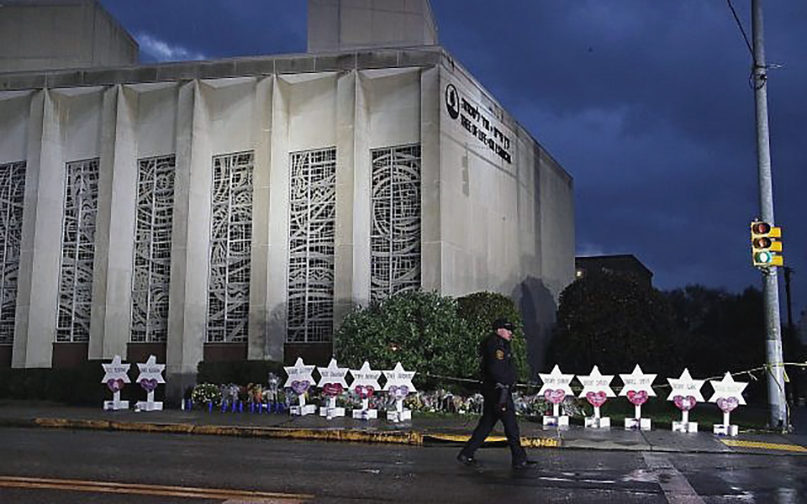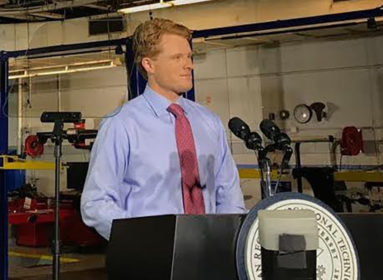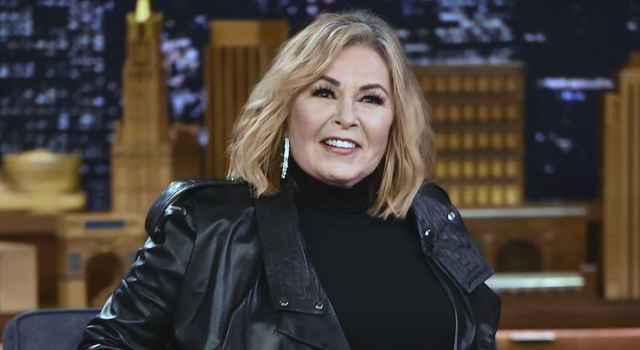
By Ben Sales
NEW YORK (JTA) – After the mass shooting at a Parkland, Florida high school nine months ago, Rabbi Yakov Saacks felt like his Long Island congregation was at risk. So the rabbi installed 17 cameras on the synagogue’s exterior that can zoom in to read numbers on license plates, as well as indoor cameras at each entrance. He began covering the windows with Kevlar, at around $800 each, making them shatterproof in case vandals hit them with rocks. And he hired armed security guards to protect the Hebrew school and Shabbat services. When the sanctuary is especially crowded, as many as three guards patrol the building carrying guns and communicating by radio.
Following the attack last month on a synagogue in Pittsburgh, Saacks said he feels vindicated in beefing up security. And he is still planning to install a metal detector at the building entrance as well as a double-door vestibule called a “mantrap.”
“This doesn’t make me happy. It doesn’t warm your heart. We still try and maintain its openness, but what happened in Pittsburgh can happen anywhere,” says Saacks, whose Chabad synagogue, the Chai Center is located in the upscale suburb of Dix Hills.
The added measures have changed Saacks’ budget. He estimates that all of the physical protections will cost $150,000 in total. That does not include some of the window and camera costs, which he paid for partly out of a $50,000 grant from New York state. And the armed guards, contracted from a private security company at $40 an hour each, cost about $360 per week.
Thomas Ruskin, who runs the CMP Group, a private security company, already provides security for a handful of Jewish institutions in the New York City area. Since the Pittsburgh shooting, he says, dozens more have inquired about his services.
“Part of this has to do with the religious organizations’ budgets,” says Ruskin, a former New York police officer who is Jewish. “They’ve never put money aside or had a fund for just this purpose. … but we never knew someone would come into a shul in an upscale suburban community and shoot people in their backs.”
Ruskin charges $500-$1,000 for a written threat assessment and security recommendations.
For more than a decade, the federal government has provided funding to help synagogues bolster their security. The Nonprofit Security Grant Program and a related program run by the Department of Homeland Security have provided a total of more than $269 million to secure houses of worship and other institutions.
The money has gone largely to Jewish institutions, according to the Orthodox Union Advocacy Center, which lobbies for the grants. In addition, in October 2017, New York state announced $25 million in grants to help secure private schools and other nonprofits. Rounds of funding awarded this year in Brooklyn and Long Island went largely to Jewish organizations.
Since 2004, Jewish institutions have received resources and guidance from the Secure Community Network, an organization co-founded by the Jewish Federations of North America that oversees the community’s security needs and liaises with law enforcement. Paul Goldenberg, the network’s former chief, cautioned against turning houses of worship into fortresses.
“Security has come with a tremendous cost to the Jewish community, not only here but abroad,” says Goldenberg, now a senior fellow for the Rutgers University Miller Center for Community Protection and Resilience. “Our institutions should not be surrounded by copper tin wire and bars.”
Still, some synagogues are opting for private security on-site.
Union Temple in Brooklyn decided to increase its security after it was vandalized with antisemitic graffiti this month. It has hired a second security guard and is requiring visitors to sign in and show ID. It is also making its windows shatterproof.
“We want to be warm and welcoming, we don’t want to live in a police state, but that’s the line you have to find,” says Union Temple President Beatrice Hanks. “The parents have been most concerned about this.”
Other synagogues have opted for volunteer security guards. The Community Security Service, a Jewish nonprofit founded in 2007, has trained 4,000 volunteer security guards for synagogues, teaching them how to spot and respond to threats.
Even if synagogues opt for a paid guard, says the organization’s executive director Jason Friedman, a community member should accompany them in order to help identify congregants and provide a reassuring face at the door. Even without armed guards, Ruskin said, there are basic steps a synagogue should take to secure itself, from locking the doors to having an evacuation plan.
Some synagogues may forgo an armed guard in order to maintain a welcoming atmosphere, but those who are hiring guards see security as a threshold issue.
Rabbi Tuvia Teldon, director of Chabad Lubavitch of Long Island, who is spearheading a campaign to raise $1 million to provide armed guards to a consortium of 30 Chabad synagogues, says, “[Worshippers] want to know there’s someone there who’s going to be watching out for them,” he said. “We want to put up a sign in every Chabad house that this is not a soft target. There are armed guards here.”







 Southern New England Jewish Ledger
Southern New England Jewish Ledger














